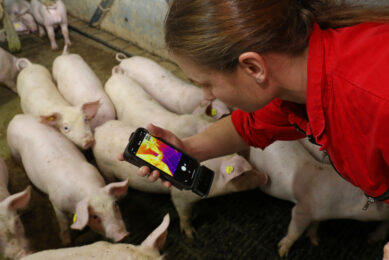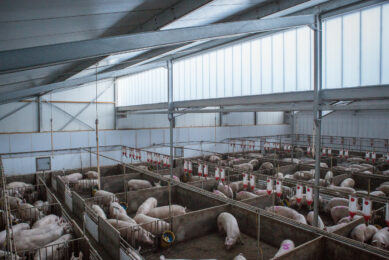Vets welcome vote for better welfare labelling
The British Veterinary Association (BVA) has welcomed the European Parliament vote to improve the labelling of food, including new country of origin labelling and a requirement to label meat from animals slaughtered without stunning (according to certain religious traditions).
On Wednesday 16th June the European Parliament voted in favour of labelling for meat from slaughter without stunning. The BVA believes that all animals should be effectively stunned before slaughter to improve the welfare of these animals at slaughter. However, as long as slaughter without stunning is permitted the BVA has argued for any meat from this source to be clearly labelled to enable all consumers to fully understand the choice they are making when purchasing such products.
Mainstream
Meat from slaughter without stunning currently enters the mainstream food chain without being labelled as such, leaving consumers unaware. The Parliament also voted to extend country of origin labelling to all meat, poultry, dairy products and other single-ingredient products as well as all meat, poultry and fish when used as an ingredient in processed food. Importantly, meat labels should indicate where the animal was born, reared and slaughtered.
The UK enjoys some of the highest animal welfare standards in the production of food and the improved country of origin labelling will allow consumers to make a more informed choice. The BVA is calling for one clear EU welfare label that takes into account the welfare of animals use in food production from birth to slaughter, including the production system, transport and method of slaughter.
Huge step
Commenting on the European Parliament vote, Prof Bill Reilly, president of the BVA, said: “This is a huge step forward in improving the welfare of animals at slaughter. The more consumers understand these issues, the more consumer power can make a difference.
“The BVA has argued for some time for meat from animals slaughtered without the more-humane method of stunning should be labelled as such and we are delighted that the European Parliament supports this view. “However, there are many issues associated with the welfare of animals in food production and the BVA would like to see the development of a clear welfare label that consumers recognise as a mark of higher animal welfare.
“Currently there are too many different labels that mean different things, which can be confusing for shoppers. One higher welfare label would go a long way to improving consumer choice and animal welfare.”
Related websites:
• British Veterinary Association (BVA)
• European Union











